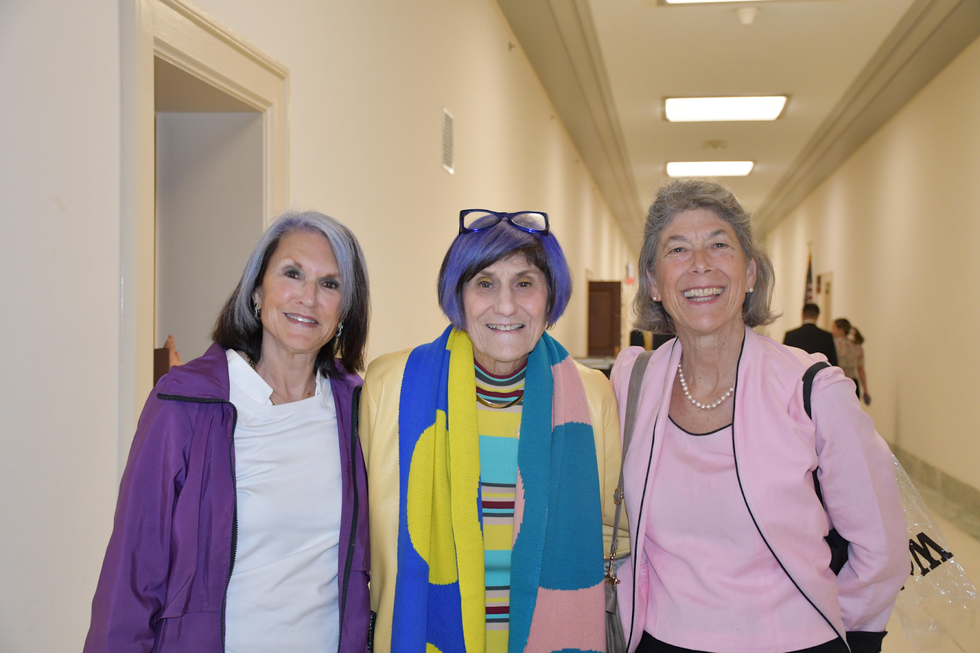Summer Policy Roundup
Clinical Trials
The issue: Lack of diversity in clinical trials
Why it matters: If we don’t represent everyone in clinical trials — including women and people of color — we don’t have complete data about how certain conditions affect everyone or what treatments work — and at what dose — for everyone. These knowledge gaps are especially stark for pregnant and lactating women.
What was done: Healthy Women convened a congressional policy briefing, “Women in Clinical Trials: The Challenge of Research During the Reproductive Years,” to educate Congress on the current status of studying women during their reproductive years and why this should be essential to public health. Advocacy organizations like HealthyWomen have long known that clinical trials and subsequent research analysis focus on white men, leaving women and people of color not only woefully underrepresented but uninformed about their health as women.
Read: Why Diversity in Clinical Trials Is Important >>
NIH and Women’s Health Research
The issue: There’s a huge funding gap at NIH for women’s health. Just under 11% of the agency’s 2020 budget went to diseases and illnesses that affect the health of women.
Why it matters: Without funding, advancements in women’s health will stall.
What was done: Phyllis Greenberger, HealthyWomen's senior vice president of science and policy, and Martha Nolan, HealthyWomen’s senior policy advisor met with House Appropriations Committee Ranking Member U.S. Rep. Rosa DeLauro (D-CT) to discuss why it’s imperative that this gap in funding focus at NIH must be addressed and why solutions must put in place.

Phyllis Greenberger, HealthyWomen's senior vice president of science and policy (left), U.S Rep. Rosa DeLauro (D-CT) (middle), and Martha Nolan, HealthyWomen’s senior policy advisor (right) in Rayburn House Office Building
Martha Nolan published an op-ed in The Hill, “The NIH must address disparities in women’s health research funding.”
“These disparities can’t be allowed to persist. It is past time for the NIH to focus the power of its purse on the burden of disease more fairly. If we’re serious about women’s health this month — and, really, women’s health all the time — the NIH must start funding medical research more equitably. The reason is simple: Millions of lives depend on it.”'RSV Vaccines
The issue: Two new RSV vaccines were approved by the FDA but guidance on who should get them and when has not yet been released.
Why it matters: If the guidance is delayed, then the Centers for Medicare and Medicaid Services is also delayed in making coverage decisions and time is lost in getting vaccines to people who need them.
What was done: HealthyWomen’s Martha Nolan, senior policy advisor, provided a public comment at the June 21, 2023, meeting of the Advisory Committee for Immunization Practices (ACIP) at the Centers for Disease Control and Prevention (CDC), advocating for decisions to be made in a timely manner regarding the newly approved RSV vaccine so everyone who is eligible for the vaccines understands the value they can play in protecting their long-term well-being.
RSV Vaccines for Pregnant People and Infants
The issue: A new maternal RSV vaccine for pregnant people to take between weeks 32 and 36 gestation to protect their infants was under review.
Why it matters: A second vaccine gives people more options for protecting infants from RSV. More choices lead to more widespread protection against this potentially deadly disease.
What was done: HealthyWomen’s Martha Nolan, senior policy advisor, submitted a written comment on September 21, 2023, to ACIP and CDC in support of approval of the vaccine, explaining why this specific vaccine is an important public health tool to protect people who are particularly vulnerable to this dangerous virus. The CDC recommended use of the vaccine in pregnant people the same day.
Fall Vaccine
The issue: Between flu, Covid, RSV and pneumococcal, there are many vaccines that people should take in the fall.
Why it matters: If people don’t use the public health tools available to them they can get seriously ill and even die.
What was done: Martha Nolan published an op-ed in The Hill, “Updated vaccines can get us through cold season if we let them.”
“Vaccines only work to protect the health of the population if enough people get them. We all need to do our part.”
Medicaid
The issue: In March 2023, states started dropping people from Medicaid at an alarming rate.
Why it matters: More than a million people stand to lose coverage that they can’t get any other way, and they will be uninsured. Loss of Medicaid coverage hits those who need the most help the hardest. On top of the moral reasons why everyone deserves healthcare, there are also negative economic impacts to individual families and states when women are ill and when women can’t work.
What was done: Martha Nolan, HealthyWomen’s senior policy advisor, spoke out about the dangers of unwinding Medicaid too fast in the states and the impact this will have on American families in an op-ed in The Hill, “Medicaid is falling down in front of us and taking American families with it.”
Over-the-Counter Birth Control
What happened: In July, a woman's ability to access birth control finally got easier when the Food and Drug Administration took the historic step of approving Opill (norgestrel) tablets as the first over the counter birth control pill. It’s the first daily oral contraceptive approved in the U.S. without a prescription. The pill is expected to be available in pharmacies starting in early 2024.
Why it matters: A non-prescription birth control option means more women will be able to easily get access to birth control since they won’t need to see a healthcare provider first.
Postpartum Depression
What happened: In August, the Food and Drug Administration took another significant step for women and the issue of maternal mental health when it approved zuranolone, a groundbreaking oral treatment for postpartum depression (PPD) that is more accessible than other available IV treatments.
Why it matters: PPD impacts 1 in 7 women in the first year following a pregnancy.


